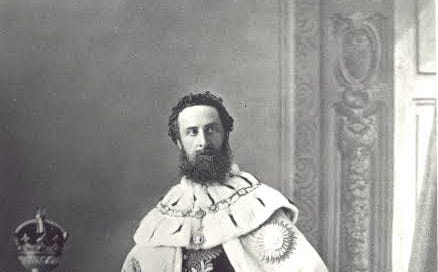Brian Farrell has just emailed to tell me about a public seminar to be held at Knebworth on 16 May 2025.
Knebworth Place had been in existence for centuries prior to 1490, the year in which what is now known as Knebworth House was purchased by Sir Robert Lytton. The ancestral home to generations of poets, authors, diplomats, musicians, suffragettes, moviemakers and even Viceroys of India – on 16 May 2025, Knebworth House plays host to the National University of Singapore with a seminar entitled Lord Lytton, India, and the Challenges of Imperial Defence. There will be will be three speakers: Brian himself, Adam Prime and Timothy Howard. It looks to be a fascinating day. Brian says that tickets will be on sale at Knebworth House website soon. I will certainly be there.
In 1876 Edward Robert Bulwer-Lytton (created 1st Earl of Lytton in 1880) was appointed Viceroy and Governor-General of India. As Viceroy he presided over the Proclamation Durbar on 1 January 1877, to mark Queen Victoria’s acceptance of the title Empress of India. That title and Lytton’s appointment both stemmed from the same source: the determination of the Prime Minister of the day, Benjamin Disraeli, the 1st Earl of Beaconsfield, to remake and rebrand the British Empire in general and India in particular. Disraeli’s vision to entrench the Conservative Party as the “party of empire,” around which it could build a lasting political majority, relied heavily on successfully retooling the British government’s direction of empire defence. Disraeli indeed may with some legitimacy be seen as having placed “Imperial Defence,” as noun and concept, atop the political agenda. He sent Lytton to India as a trusted and loyal supporter who could be relied on to advance this vision of “imperial nationalism.” This desire to “regularize” or even “professionalize” Imperial Defence placed Lytton in the van of what turned out to be a long and complicated journey towards the Committee of Imperial Defence and the systematization of that mission in the twentieth century – a journey driven heavily by concerns for the defence of British India.
The papers presented at this seminar are works in progress that explore various aspects of the challenges of Imperial Defence and the defence of India. Some were launched during Lytton’s viceregal term, others advanced or complicated by it, and all remained central to the problem long after it. They present a range of connected themes: the Viceroy and his understanding of how best to secure India within the larger challenges of wider British
Empire defence strategy; the long-running argument about the frontier and how it should shape defence strategy for India, an argument focused by the 2nd Afghan War (fought under Lytton’s higher direction) – the search for the so-called “scientific frontier”; and the tactics and techniques by which the British Indian Army sought, on the ground, to defend India, under dynamic political and doctrinal conditions. Together they amount to revisiting a fundamental story: how did those charged to defend what was by then the largest maritime empire the world had ever seen understand, and try to manage, challenges to defend India – the most crucial region of the entire empire project but one that could not be defended by sea? To us this is a distant past. To Lytton, and those who engaged these challenges during and after his term in India, they were the temper of their times. This seminar will discuss what they made of them and to what ends.




